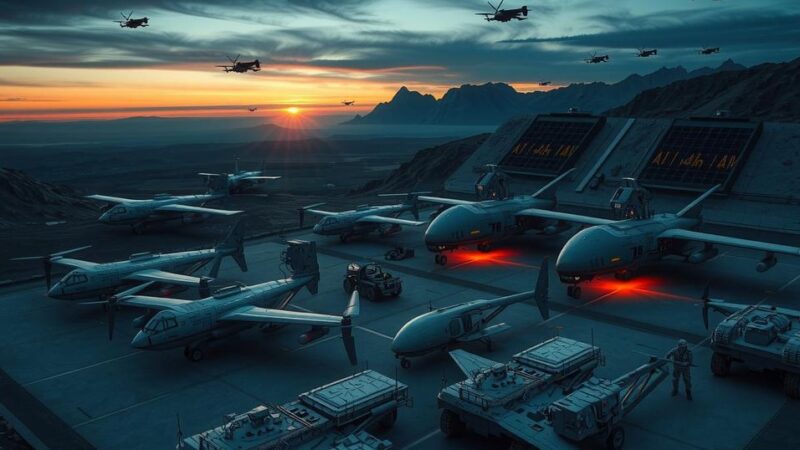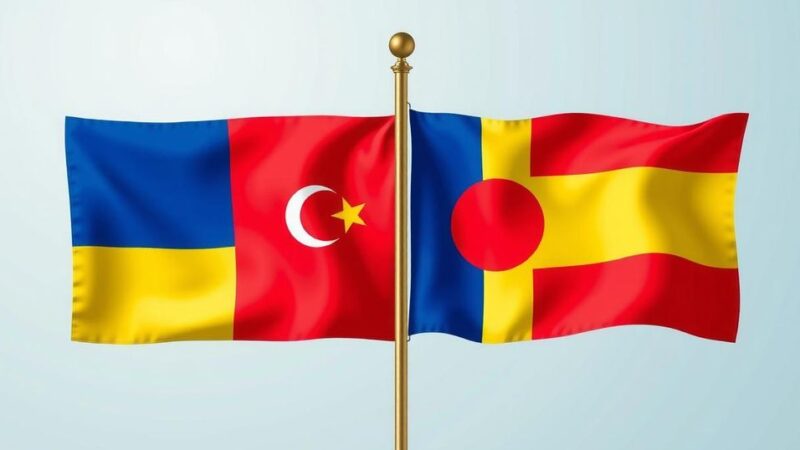Uganda has deployed additional military forces to South Sudan under “Operation Mlinzi wa Kimya” to reinforce its presence during escalating conflicts. The operation, initiated on March 11, involves significant troop movements to support South Sudanese government forces. Critics question Uganda’s motives, suggesting the intervention aims to bolster President Salva Kiir’s regime. Violence continues in the region, notably with the White Army militia, exacerbating the political situation.
Uganda has recently increased its military presence in South Sudan, executing “Operation Mlinzi wa Kimya” amid escalating conflict between government forces and various armed groups. This troop deployment comes in response to intensifying violence in the Upper Nile State and political instability in Juba. Col. Chris Magezi, the acting army spokesman, confirmed the reinforcements, emphasizing UPDF’s commitment to regional stability and support for South Sudanese forces.
The troop briefing, led by Lt. Gen. Kayanja Muhanga, took place at the 4 Infantry Division Headquarters in Gulu prior to their deployment. The operation began on March 11, 2025, with special operations forces initially inserted through Juba International Airport. Additional UPDF task force elements have since been deployed through Bibia and Nimule along the Uganda-South Sudan border, under Brig. Gen. Anthony Mbuusi Lukwago’s command, who has extensive counterinsurgency experience.
Despite regional discourse surrounding Uganda’s military involvement, South Sudan’s government justifies the intervention through a longstanding bilateral military agreement aimed at combating destabilizing forces like the Lord’s Resistance Army (LRA). Minister of Information, Michael Makuei Leuth, reiterated that the UPDF’s role aligns with this security arrangement, stating, “The government of South Sudan and the government of Uganda have a military pact that was signed since the time of the LRA.”
Critics, however, argue that Uganda’s intervention primarily seeks to bolster President Salva Kiir’s administration amidst rising tensions with opposition factions. Gen. Muhoozi Kainerugaba, Uganda’s Chief of Defence Forces, has affirmed that any action against Kiir would be viewed as a declaration of war against Uganda, reinforcing their support for the South Sudanese president.
South Sudan has witnessed a renewed crisis marked by new clashes between government forces and the White Army, a formidable Nuer militia. Recent violence in Upper Nile State, especially near Nasir, led to attacks on UN personnel, resulting in casualties. In response, Minister Makuei has warned the White Army to withdraw from military zones or face military action, describing civilians in such zones as “negative forces.”
In light of these developments, Uganda’s NRM Parliamentary Caucus has endorsed the UPDF deployment, emphasizing the necessity of preventing further unrest. Meanwhile, the UN and other international stakeholders have yet to officially address Uganda’s justification based on the anti-LRA pact.
In summary, Uganda’s increased military presence in South Sudan through “Operation Mlinzi wa Kimya” aims to stabilize the region amidst escalating conflict. While the South Sudanese government defends the intervention as a continuation of a longstanding military pact, opposition criticisms highlight concerns regarding Uganda’s motives. The ongoing crisis includes violent clashes with the White Army, further complicating the situation. The support for Uganda’s deployment by the NRM Parliamentary Caucus indicates local backing, although international responses remain pending.
Original Source: chimpreports.com






